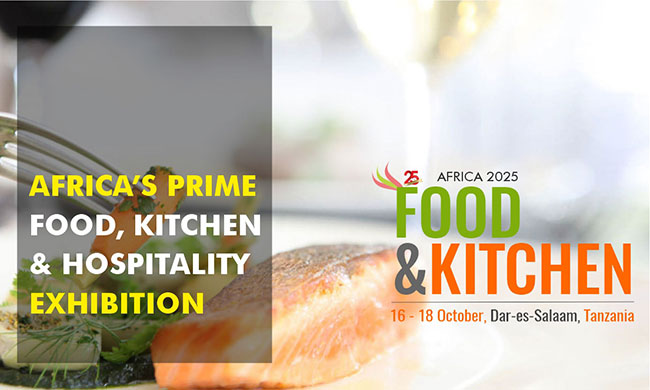

Tanzania: Grape Farming Receives Boost from PASS Loan
Posted on :Saturday , 29th April 2017
Elias Mgwabi prunes grape plants on his vineyard at Mtitaa Village in Bahi District, Dodoma Region.
AT Mtitaa Village in Bahi District, Dodoma Region, a middle- aged farmer Elias Mgwabi and his labourers are trimming down branches from grape plants as fruits begin to grow on his 12-acre vineyard.
The vineyard has become a model farm in the country's major grape growing region, attracting other grape growers to visit and learn on how to improve the cash crop production.
"We normally prune branches without grapes to give room to those with fruits to grow well," says Mgwabi, the 2016 best farmer (Central Zone) in agricultural trade fair which was organized by the Tanzania Agriculture Society (TASO) at Nzuguni grounds in Dodoma Region.
He is one of the beneficiaries of initiatives by the Private Agricultural Sector Support (PASS), a non-profit making and non-governmental organization that aims at stimulating investments and growth in the private sector commercial agriculture through finance accessibility.
In 2014, Mgwabi decided to set up his own wine factory near his vineyard at Mtitaa Village after receiving 40m/- agricultural input loan, thanks to PASS guarantee. The factory is currently producing the Mtitaa Wine. "I also extended my fouracre vineyard by purchasing eight more acres, bringing the total land to 12 acre-vineyard to uplift the level of grape production," says the grape grower, who embarked on the journey of growing grapes eight years ago.
Mr Mgwabi says his vineyard now produces between 60 and 70 tonnes of grapes from only 16 tonnes per year prior to receipt of the loan, pointing out that after establishing his own wine factory he no longer sells grapes. "Previously, one would find many trucks parked here loading grapes after harvests.
But, the trucks now load the processed grapes, into wine, from my Mtitaa Wine Factory," says the father of five-children. His grape wine factory, which is under his own company, Mgwabi Investment Company, has permanently employed seven people while creating an opportunity of reliable market for his fellow grape growers in the village. Tanzania is the second largest producer of wine in Sub- Saharan Africa after South Africa.
Compared to the rest of the world, the history of wine in the country remains nascent, dating back to just a few years before independence. The most common grape variety in Dodoma are Chenin Blanc, Syrah, Cabernet Sauvignon and local variety named for a Dodoma sub-region, Makutupora. Vines were first introduced in the country by members of the Roman Catholic Congregation of the Holy Ghost in 1939. The Missionaries from the Hombolo Catholic Mission planted their first vines near Kondoa District in Dodoma.
Initially, the vines grown were used for domestically making wine for religious uses and domestic consumption. Mgwabi says the idea to set up his own wine factory came up after dishonest traders, who act as middlemen in the grape business, attempted to cheat him out of measurement of grapes on his vineyard, some years back. "They travelled all the way from neighbouring country to Mtitaa village to purchase grapes from my vineyard.
The agreement of price of grapes per kilogramme was great," recalls the grape grower. But, Mgwabi says he was shocked how a weighing scale, which the traders came with, was wrongfully reading as it had been tampered with. "I lost trust in the traders who acted as middlemen in grape business.
After seeking support, PASS agreed to support me to access agricultural input loans from financial institutions," he says. Mgwabi is now optimistic to increase grape production after purchasing the 20-acre farm for grape production, thanks to the 100m/-PASS facilitated and guaranteed loan in 2016 after repayment of the first 40m/- loan. "I've used the current loan to import a modern grape crushing machine from Italy.
The machine will be installed soon in the factory to replace the handoperated machine," he observes. According to PASS Managing Director Nicomed Bohay, about 185,000 smallholder farmers had benefited from loans which were facilitated by PASS in 2016 and that the agricultural input credits have helped to uplift the level of agricultural production in the country.
PASS Managing Director Nicomed Bohay told the 'Daily News' recently that PASS helped farmers to access the agricultural input loans from financial institutions, noting that in total farmers received 101bn/- from banks, which work with PASS. Mr Bohay was speaking at the agro-trade fair at Mashujaa Grounds in Dodoma municipality, recently.
The National Economic Empowerment Council (NEEC) organised the four-day event. He pointed out that PASS had been supporting farmers through provision of credit guarantee cover on credits provided by collaborating financial institutions.
PASS assists eligible individuals and companies to access loans for their viable investment by appraising loan write ups in line with terms and conditions of the banks collaborating with PASS.
The banks currently collaborating with PASS are CRDB, NMB, EXIM, TIB, FBME, KCBL, BOA, ABC, and Akiba Commercial Bank. PASS will enter into a formal contract with client in order to provide the requested services.
After the collaborating bank accepts the client's business plan that was prepared by PASS, there will be further communication between PASS and the collaborating bank on risk sharing between the NGO and the bank.
Please Select an Option
-
Exhibiting
-
Visiting
-
Information

Expogroup
Expogroup is a full service exhibition organiser with over 28 years experience in International trade exhibitions. Our current portfolio includes 28 annual exhibitions from a diverse range of industries being held across the Middle East & Africa.
EXPOGROUP © 1996 - 2024 | Privacy policy